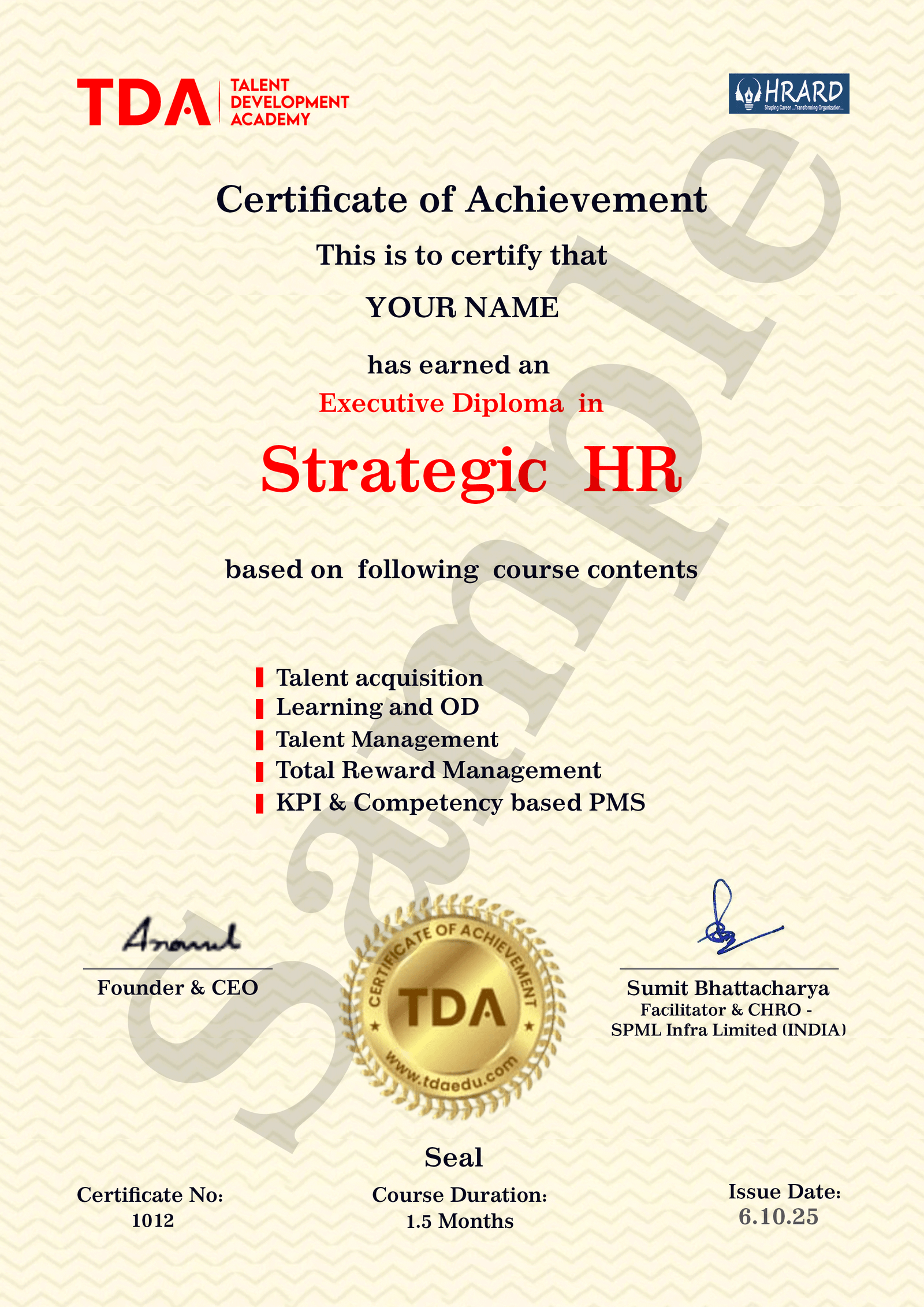Competency based interview and techniques for right selection
Industry Expert Faculties
Our trainers are highly experienced HR professionals who bring real-world expertise to the classroom.

Dr. SUMIT BHATTACHARYA
25+ Years of HR Experience
Chief Human Resources Officer
SPML Infra Limited - INDIA (The Largest Infrastructure company in South Asia)
"Asia's 100 Most Impactful HR Leaders Award 2025"
Universities connected with University of Minnesota, Yale University, University of Michigan, University of California, University of Toronto, University of Pennsylvania SHRM- USA

- Course Duration: 1 Months
- Class Duration: 2 Hours
- Total Session: 6
- Ongoing Batch: Batch 06
- Class Starts: 29 May, 25
- Classes on: Sunday & Thrusday
- Classes Time: 09:00 PM - 11:00 PM
Course Content
Module 1: Foundations of Behavioral and Competency-Based Interviewing
Objective: Provide a foundational understanding of the principles and importance of behavioral and competency-based interviewing in talent acquisition.
Overview of Interview Types: Introduction to various interview types, including behavioral, situational, rapport building, open-ended, and closed questions.
Behavioral Interviewing Basics: Understanding the concept that past behavior is the best predictor of future behavior.
Competency-Based Interviewing: Identifying and evaluating specific competencies required for the job role.
Importance in HR: How behavioral and competency-based interviewing techniques contribute to better hiring decisions and organizational success.
Module 2: Job Analysis - Introduction and Key Concepts with its practical implementation
Conducting a Job Analysis – Practical exercises
Steps: Identify tasks, write and rate task statements, determine KSAOs, select tests.
Methods of Job Analysis
– Observation, Interviews, Questionnaires (PAQ), Diary, CIT.
Application
– Uses in job descriptions, selection, training, appraisal, and compliance.
Module 3: Job Evaluation - Introduction, Definition, Purpose, and Importance for fair pay structures.
- 3.1 Evaluation Methods – Practical exercises
- 3.2 Qualitative: Paired Comparison, Job Ranking.
- 3.3 Quantitative: Point-Factor, Factor Comparison
Module 4: Designing Effective Behavioral Interview Questions
Objective: Equip HR professionals with skills to design and implement effective behavioral interview questions
Structuring Behavioral Questions: Techniques for framing questions that require candidates to reflect on past experiences.
STAR Method: Introduction and application of the STAR method for structuring answers.
APRIL Method: Exploring the APRIL method as an alternative questioning framework.
Creating Question Banks: Developing a bank of questions tailored to specific competencies and job roles.
Module 5: Conducting Behavioral Interviews
Objective: Teach HR professionals how to conduct behavioral interviews effectively, ensuring consistency and reliability.
Effective Questioning Techniques: Strategies for using open-ended, contrary evidence, and situational questions to elicit detailed responses.
Building Rapport: Techniques for making candidates comfortable, which leads to more authentic responses.
Using Silence: How to use pauses and silence effectively to encourage candidates to provide more information.
Interview Structure: Organizing the interview to cover all necessary competencies while maintaining a conversational flow.
Module 6: Evaluating Candidates Using Competency-Based Approaches
Objective: Provide tools and techniques for evaluating candidates’ responses in a structured and objective manner.
Structured Interviews: The importance of using structured interviews with predetermined questions and scoring criteria.
Behavioral Dimensions: Key behavioral dimensions frequently measured, such as general intelligence, job knowledge, personality, and applied social skills.
Rating Responses: Using anchored rating scales to score responses consistently and objectively.
Bias Mitigation: Techniques for reducing interviewer bias and ensuring fairness in the evaluation process.
Registration Now

Milestones and
Achievements
Highlighting our impactful accomplishments and successful milestones with meaningful metrics.


